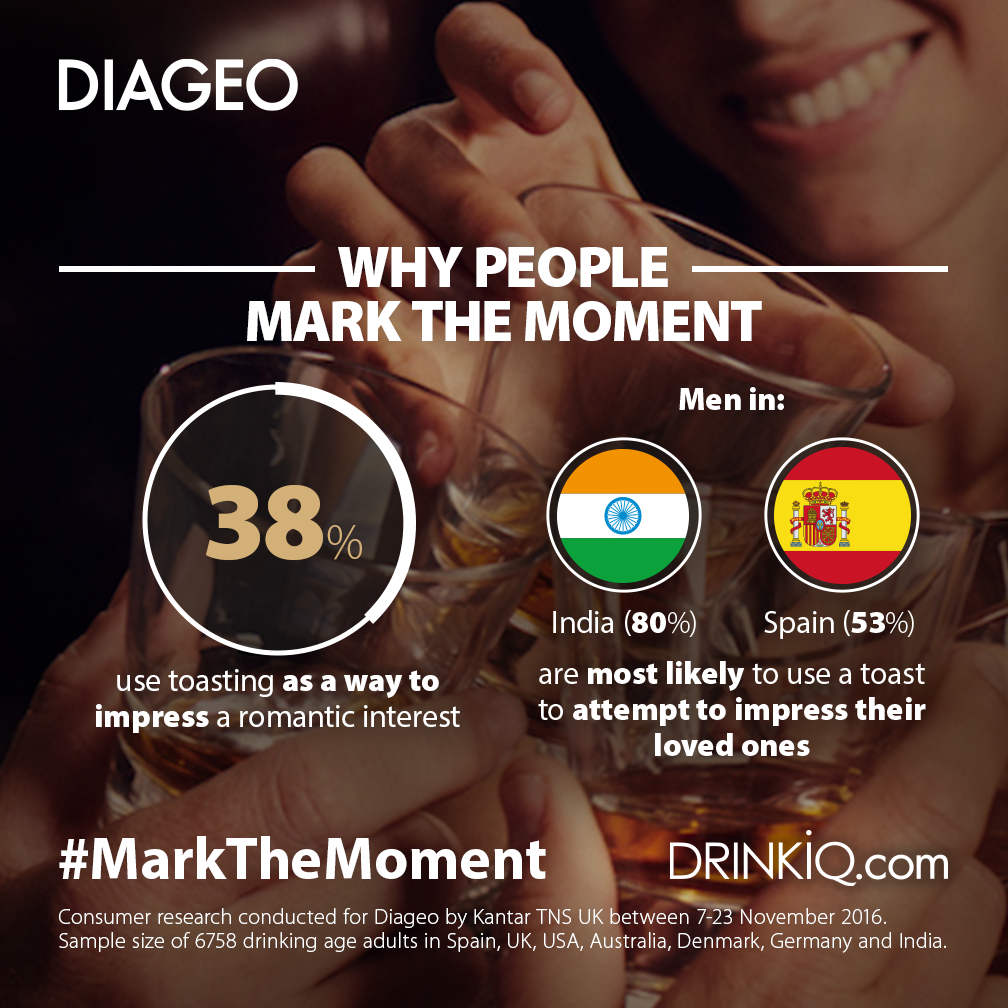Raising a toast continues to remain a traditional habit around the world during New Year, according to a global study released last month by Diageo on how people celebrate modern festivals.

Raising a toast continues to remain a traditional habit around the world during New Year, according to a global study released last month by Diageo on how people celebrate modern festivals.
The study, which polled almost 7,000 adults, also found that people around the world toast to celebrate their promotion at the workplace or to get noticed by their love interest.
From clinking glasses to toasting, the research explores the cultural significance of celebration rituals. Nearly half (47 per cent) agreed that marking a moment through a specific act or phrase is a crucial part of their cultural heritage, while a superstitious fifth (20 per cent) do so in order to ward off bad luck in their romantic endeavours.
Men are the most likely to use a toast to attempt to impress their loved ones, with 43 per cent seeing a toast as a way to catch the eye of a romantic interest, compared to only a third of women.
Carolyn Panzer, Alcohol in Society Director, Diageo, said: “Toasting as a way to mark the moment during a celebration is nothing new, but our research shows just how far the tradition has come since its beginnings in the Neolithic period.
“Our research suggests two-thirds of the world will be raising a toast of celebration this festive season and we know that where people celebrate, and who they do it with, is just as important as the drinks they choose to toast with.
“The global language of celebration is about people enjoying rituals and traditions that help mark the moment at this special time of year.”
The study also revealed that men in the USA and UK are among the most superstitious, with 29 per cent and 27 per cent respectively believing that not completing a toast will lead to bad luck.
Meanwhile, women in the USA are some of the least likely to use a toast to impress a loved one, with less than a fifth (19 per cent) seeing it as a way to impress.
It is not only the amorous who raise a toast: a quarter (25 per cent) of animal-loving people in the UK even raise a toast in honour of their beloved pet.
A fifth of people across the world feel drinking more than the host is a festive no-no, whilst the same amount (20 per cent) believed not knowing the right toasting traditions to be a faux pas.
The majority of people in Spain, Germany, and Denmark (72 per cent, 70 per cent and 70 per cent respectively) view drinking to excess as the worst way to spoil a celebration.
Data on what people are searching for online also shows people are increasingly seeking out ways to raise the perfect toast.
In the last four years, searches for topics such as ‘cheers’ and ‘the perfect toast’ across India, the US and the UK have increased by nearly two-thirds (60 per cent).
Searched data also shows people are ever more international in their toasting, with searches for phrases like ‘cheers’ in other languages increasing by 163 per cent and Italian (“Saluti!”) proving to be the most popular language for searches.
In its global study, Diageo found that the Danish concept of Hygge, which erupted in popularity over the last year, continues to grow in different guises around the world. Hygge, often translated as cosiness, means creating a warm atmosphere at home and enjoying the good things in life with good people.
- Tags
- Diageo vietnam





